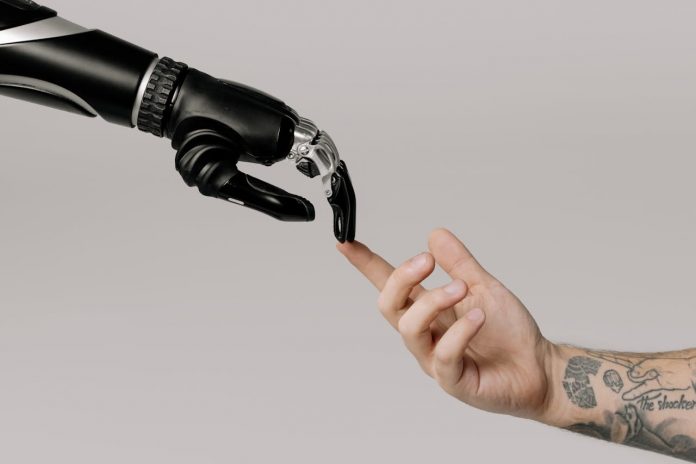As we navigate the ever-evolving landscape of technology, one thing becomes abundantly clear: the future of work is intricately tied to the rise of artificial intelligence (AI). With the rapid advancements in AI technology, industries across the globe are witnessing a transformation that promises to redefine traditional roles and workflows. In this AI-empowered world, organisations are faced with both challenges and opportunities, requiring adaptability and innovation to thrive.
Lakeba Group, a global venture studio based in Australia, stands at the forefront of this technological revolution. Led by entrepreneurial leader Giuseppe Porcelli, Lakeba is pioneering AI-driven solutions that are reshaping industries and reimagining the future of work. Through strategic partnerships and cutting-edge innovation, Lakeba is leveraging AI to streamline processes, boost productivity, and drive growth in diverse sectors.
In this AI-empowered world, the nature of work is undergoing a profound shift. Automation and AI-driven technologies are augmenting human capabilities, enabling employees to focus on higher-value tasks that require creativity, critical thinking, and emotional intelligence. Routine and repetitive tasks are increasingly being automated, freeing up time for employees to engage in more meaningful and strategic work.
One of the key advantages of AI in the workplace is its ability to analyse vast amounts of data and extract actionable insights. From predictive analytics to personalised recommendations, AI-powered tools are revolutionising decision-making processes across industries. By harnessing the power of data, organisations can gain a competitive edge, identify market trends, and make informed decisions that drive business growth.
Moreover, AI is redefining collaboration in the workplace, breaking down geographical barriers and facilitating seamless communication and knowledge sharing. Virtual assistants, chatbots, and collaborative platforms powered by AI are enhancing productivity and fostering a culture of innovation and teamwork. Employees can collaborate in real-time, regardless of their location, leading to greater efficiency and agility in today’s fast-paced business environment.
However, as organisations embrace AI technologies, they must also address concerns surrounding job displacement and workforce re-skilling. While automation may eliminate certain roles, it also creates new opportunities for up-skilling and retraining employees for jobs that require a human touch. Investing in lifelong learning and professional development programs is essential to ensuring that the workforce remains adaptable and resilient in the face of technological change.
Furthermore, ethical considerations play a crucial role in the deployment of AI in the workplace. As AI systems become increasingly autonomous, it is imperative to establish clear guidelines and regulations to ensure transparency, fairness, and accountability. Lakeba, under the leadership of Giuseppe Porcelli, is committed to ethical AI practices, prioritising privacy, security, and responsible innovation in all its endeavours.
In conclusion, the future of work in an AI-empowered world is filled with promise and potential. By embracing technological advancements and fostering a culture of innovation, organisations can harness the transformative power of AI to drive growth, enhance productivity, and create a more agile and resilient workforce. With visionary leaders like Giuseppe Porcelli at the helm, companies like Lakeba are leading the charge towards a future where humans and machines collaborate harmoniously to achieve greater heights of success.












